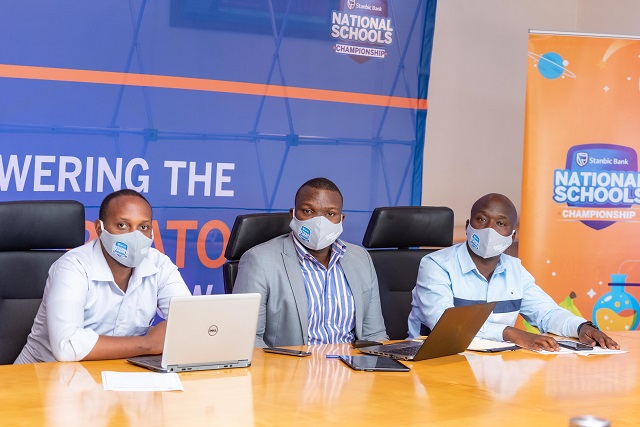
Kampala, Uganda | Julius Businge | Stanbic Bank Uganda has announced the regional finalists of the National Schools Championship 2021, the bank’s executives said in a notice sent to The Independent on May 07.
This competition was started in 2015 as a corporate social investment programme aimed at equipping students with knowledge and skills not taught in the classroom.
Following a rigorous screening process in which a panel of business analysts assessed a total of 532 business idea profiles, 28 finalists were selected, comprising 20 schools, 4 NSC alumni and 4 patron teachers.
The business ideas included among others, commercial rearing of lab rats, production of flavoured shea butter, and shoe vera – a polythene material to extend shoe life.
Barbara Kasekende, the Stanbic Bank’s corporate social investment manager said one out of every three of the submitted business ideas were in the manufacturing sector, 24% in agriculture and 7% in ICT.
The three sectors are part of those that the government is banking on to transform people’s lives and cause social economic transformation.
Half of the business ideas were submitted by female participants and 14% of the winning business ideas by orphan or community based schools.
“As a bank, it is our responsibility to identify amazing ideas, and provide the necessary resources and environment for them to grow into sustainable businesses,” Kasekende said.
Business pundits support the idea of grooming young people to become successful entrepreneurs as one way of solving the unemployment problem.
With 77% of Uganda’s population being under the age 25, and majority searching for jobs – which are scarce – analysts urge more private sector players to invest in campaigns of Stanbic’s nature.
The NSC initially targeted only students, but the 2021 championship has grown to four categories; BizGrow for already existing NSC student businesses in schools; StartUp for new student businesses in schools; AlumGrow for NSC alumni who have completed secondary education; and TeachGrow for NSC patron teachers.
Going forward, Kasekende said, the finalists of the business idea generation stage will participate in a regional business plan presentation competition in June, at which they will pitch their ideas before a panel of business judges in their respective regions of Uganda. Thereafter, regional winners will be selected to proceed to the national finals.
Some of the schools that produced winners include; Mityana Trinity College (central), Kigumba Intensive S. School (northern), Kyebambe Girls’ S.S (western) and Busoga High School (eastern).
Since its inception, slightly over 180 schools have participated in the championship and a total of 20 businesses have been set up by students.
 The Independent Uganda: You get the Truth we Pay the Price
The Independent Uganda: You get the Truth we Pay the Price


